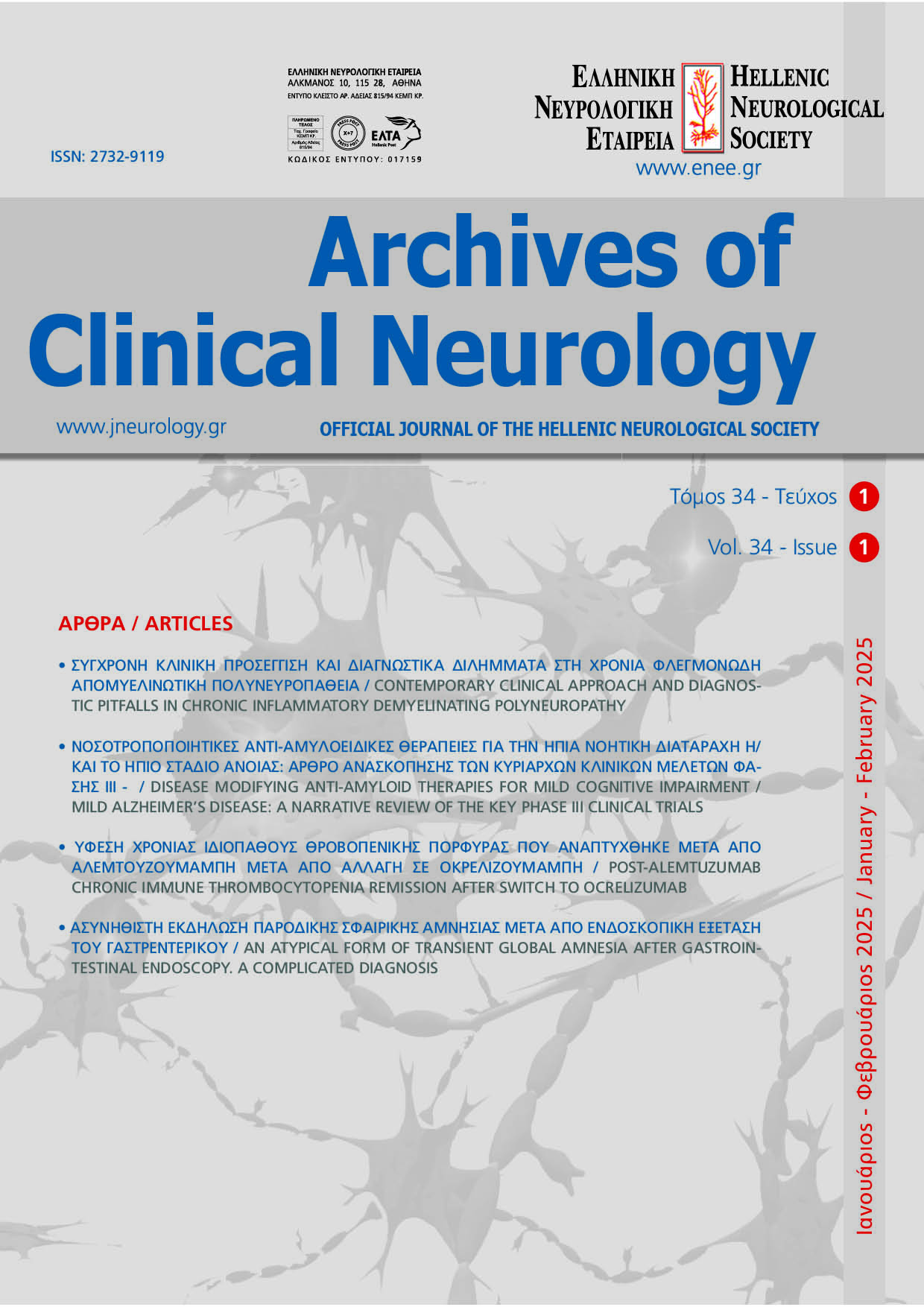DISEASE MODIFYING ANTI-AMYLOID THERAPIES FOR MILD COGNITIVE IMPAIRMENT / MILD ALZHEIMER’S DISEASE: A NARRATIVE REVIEW OF THE KEY PHASE III CLINICAL TRIALS
Keywords:
Alzheimer’s disease, monoclonal antibodies, amyloid aggregations, clinical trialsAbstract
Alzheimer’s disease is the most common cause of dementia, a neurodegenerative disorder of older adults
primarily, which is rising as the world population ages. Selective memory impairment is a prominent
clinical manifestation of AD, although there are exceptions, and the core disease pathology consists of amyloid aggregation. The amyloid positivity is also reflected through the biomarkers (Aβ42, Αβ42/Αβ40)
that appear firstly changed, almost 19 to 15 years prior to symptoms, according to the disease trajectory
which is confirmed by several studies even nowadays. In response to amyloidosis, plenty of novel therapies
have been tried out and target the amyloid accumulation, contrary to the accepted available treatments
which can improve some symptoms, while the disease inevitably progresses. This current article provides
an overview of the three successful monoclonal antibodies against amyloid aggregates, aducanumab,
lecanemab, and donanemab, and their relevant phase III clinical trials as for design, main characteristics,
safety profile and outcomes. The latter one has been recently accepted by Food and Drug Administration
(FDA) and is under evaluation of European Medicines Agency (EMA), though aducanumab and lecanemab
have already been FDA approved, and only lecanemab has been recently EMA approved. We also underline
several key points and gaps of current evidence and provide aspects of ongoing research.


